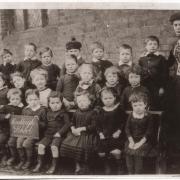Christmas is a time of great excitement for so many children, but for people with autism, the changes to routine can be very challenging. Petra Hornsby learns more from Anglia Autism
The run-up to Christmas for most children is full of magic and excitement. Special activities at school, trips to see Father Christmas and decorating the house and tree are just some of the things that are all part of the fun, but for a child diagnosed with autism, all of the above can cause a great deal of distress.
Clare Moles, Deputy Head of Family Support from Autism Anglia, explains: ‘The condition can make a child highly sensitive to a lot of things we associate with Christmas — loud music, flashing lights and a change of routine, for example. With too much of this going on, a child with autism will become over stimulated and not feel able to cope.’
Autism is a developmental condition which affects brain function. It can mean that someone with autism finds it hard to relate to those around them and what most people find quite normal can be confusing and scary. It is described as a spectrum disorder as it affects people in different ways and to different degrees; some people can live quite independently, but others will need a lot more support.
It isn’t entirely clear how many people have autism spectrum disorder, but it is estimated at one in a hundred will have autism or Asperger Syndrome.
Autism Anglia is an independent charity providing care and support to children, adults and family members affected by autism across Essex, Suffolk, Norfolk and Cambridgeshire. It strives to provide a personalised approach for each individual, working with them to enhance their strengths and abilities. The charity offers Supported Living Packages, Adult Study Centres and professional advice and training as well as specialist facilities for children and teenagers at Doucecroft School in Colchester. This school also offers post-16 provision and support for those approaching school-leaving age, encouraging preparation for adult life and developing relevant skills.
A key part of the charity is its Family Support Service. Clare continues: ‘A diagnosis of autism can provoke many different emotions amongst parents and our support team can provide information on the condition, outline the help that is available and give practical advice on how to maintain quality of life. In the past year, our team helped in the region of 904 new families and provided ongoing support for 328.’
Autism Anglia and its Family Support Team are keen to offer advice on how to make the festive period as enjoyable a time as possible for all: ‘Families affected by autism often find Christmas a difficult time of year. Events and traditions that other children might find exciting and fun can be frightening and disturbing to those with autism, as it is a change to the usual routine. They might struggle with parties and other social gatherings which can cause families to become isolated. It’s important for parents to feel supported, to know that they’re not alone and to have strategies to deal with what can be a very stressful time of year.’



























